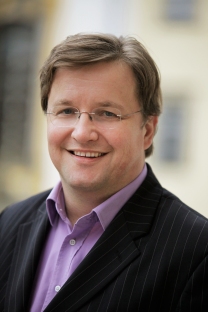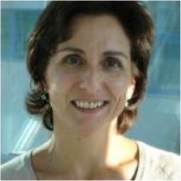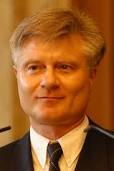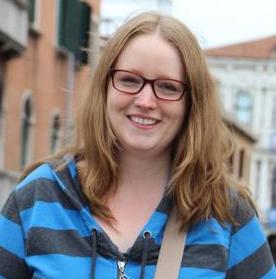Save the day and register early, as we have only a limited number of seats (registration form below).
Date: 2015-Mar-16; 13:00–16:00
Location: Chalmers (Campus Lindholmen), House Jupiter, Room 520 Omega
In order to achieve quicker time-to-market of new features, many companies have turned towards more agile development approaches. Continuous integration environments have been set up and some companies are now even able to continuously deliver new software to their customers. How does this affect the way we manage requirements?
In agile (software) development, requirements are usually explored breadth-first and then refined just-in-time when they are scheduled for an iteration or release. Agile methods put less emphasis on written documentation of requirements and value oral communication higher. For example in eXtreme Programming, Kent Beck suggested to use story cards as reminders of user requirements, to discuss and prioritize them during the planning game, and to refine them in more detail by fixing acceptance criteria as well as unit tests. But do such strategies scale from small software development teams to larger system development?
Workshop setup: In this SEEC workshop, we will explore the questions above with a strong focus on discussions, based on position statements from industry participants. Based on concrete examples from industry, we will explore challenges and opportunities for requirements engineering in agile systems and software development.
The workshop aims at both practitioners and academics in the field of software engineering. Participants will profit from a variety of positions that will be brought up through position statements (short talks of 10-15min) and discussions.
Registration: Participation is free. We advertise this event widely and have a limited number of places. Please register by filling in your contact data in the form at the end of this page – we will select participants strictly on a first-come-first-serve basis. Please also indicate in the form, if you would like to give a position statement and which topics you would wish for in the discussion.
Proposed Agenda
| 13:00 – 13:30 |
Welcome (Eric Knauss) |
| 13:30 – 13:45 |
Baldvin Gislason Bern – Success without Requirements Engineering |
| 13:45 – 14:00 |
Position Statement 2 |
| 14:00 – 14:15 |
Coffee break |
| 14:15 – 14:30 |
Position Statement 3 |
| 14:30 – 15;30 |
Discussion (Plenary or in groups) |
| 15:30 – 15:50 |
Wrapup of workshop and discussions |
|
|
| 15:50 – 16:00 |
Closing (Eric Knauss) |




 Anna Perini is a senior researcher at the Software Engineering research unit of FBK ICT – Center for Information Technology, Trento (Italy), where she conducts research in requirements engineering. She is project coordinator of the H2020 project SUPERSEDE, and of the joint programme FBK-ICT and CNR-ISTC, on Ontology-Based Information Systems (OBIS).
Anna Perini is a senior researcher at the Software Engineering research unit of FBK ICT – Center for Information Technology, Trento (Italy), where she conducts research in requirements engineering. She is project coordinator of the H2020 project SUPERSEDE, and of the joint programme FBK-ICT and CNR-ISTC, on Ontology-Based Information Systems (OBIS).  Hermann Kaindl is the director of the institute for computer technology and a member of the senate at TU Wien. He joined this institute in early 2003 as a full professor. Prior to moving to academia, he was a senior consultant with the division of program and systems engineering at Siemens AG Austria. There he has gained more than 24 years of industrial experience in software development. His current research interests include software and systems engineering focusing on requirements engineering and architecting, and human-computer interaction as it relates to interaction design and automated generation of user interfaces. He has published 5 books and more than 200 refereed papers in journals, books and conference proceedings. He is a Senior Member of the IEEE, a Distinguished Scientist member of the ACM, Fellow of the IARIA and a member of the AAAI, and is on the executive board of the Austrian Society for Artificial Intelligence.
Hermann Kaindl is the director of the institute for computer technology and a member of the senate at TU Wien. He joined this institute in early 2003 as a full professor. Prior to moving to academia, he was a senior consultant with the division of program and systems engineering at Siemens AG Austria. There he has gained more than 24 years of industrial experience in software development. His current research interests include software and systems engineering focusing on requirements engineering and architecting, and human-computer interaction as it relates to interaction design and automated generation of user interfaces. He has published 5 books and more than 200 refereed papers in journals, books and conference proceedings. He is a Senior Member of the IEEE, a Distinguished Scientist member of the ACM, Fellow of the IARIA and a member of the AAAI, and is on the executive board of the Austrian Society for Artificial Intelligence.  Dr. Jennifer Horkoff is a Postdoctoral Fellow at the CAS Business School, City University, London. She is the holder of a two-year Marie Sklodowska Curie Intra-European Fellowships for career development (IEF), working under the supervision of Prof. Neil Maiden. She is also a holder of a Natural Sciences and Engineering Research Council of Canada Postdoctoral Fellowship. Jennifer received her Ph.D. in Computer Science from the University of Toronto, under the supervision of Prof. Eric Yu. She spent 2.5 years at the University of Trento, Italy, as part of the Lucretius: Foundations for Software Evolution project, working with Prof. John Mylopoulos and colleagues. She has been an author or co-author of more than 20 papers in peer-reviewed journals, conferences, or workshops. Her research interests lie in enhancing the use of conceptual modeling for requirements engineering and business analysis, focusing on creativity, interactive analysis, uncertainty, scalability, and the application of RE-inspired conceptual modeling to business intelligence. Jennifer is on the program committee of several international conferences, including RE, REFSQ and CAiSE, has been on the organizing committee of RE, and has been a (co-)organizer of several workshops, including iStar, RIGiM, and MReBA.
Dr. Jennifer Horkoff is a Postdoctoral Fellow at the CAS Business School, City University, London. She is the holder of a two-year Marie Sklodowska Curie Intra-European Fellowships for career development (IEF), working under the supervision of Prof. Neil Maiden. She is also a holder of a Natural Sciences and Engineering Research Council of Canada Postdoctoral Fellowship. Jennifer received her Ph.D. in Computer Science from the University of Toronto, under the supervision of Prof. Eric Yu. She spent 2.5 years at the University of Trento, Italy, as part of the Lucretius: Foundations for Software Evolution project, working with Prof. John Mylopoulos and colleagues. She has been an author or co-author of more than 20 papers in peer-reviewed journals, conferences, or workshops. Her research interests lie in enhancing the use of conceptual modeling for requirements engineering and business analysis, focusing on creativity, interactive analysis, uncertainty, scalability, and the application of RE-inspired conceptual modeling to business intelligence. Jennifer is on the program committee of several international conferences, including RE, REFSQ and CAiSE, has been on the organizing committee of RE, and has been a (co-)organizer of several workshops, including iStar, RIGiM, and MReBA. 
